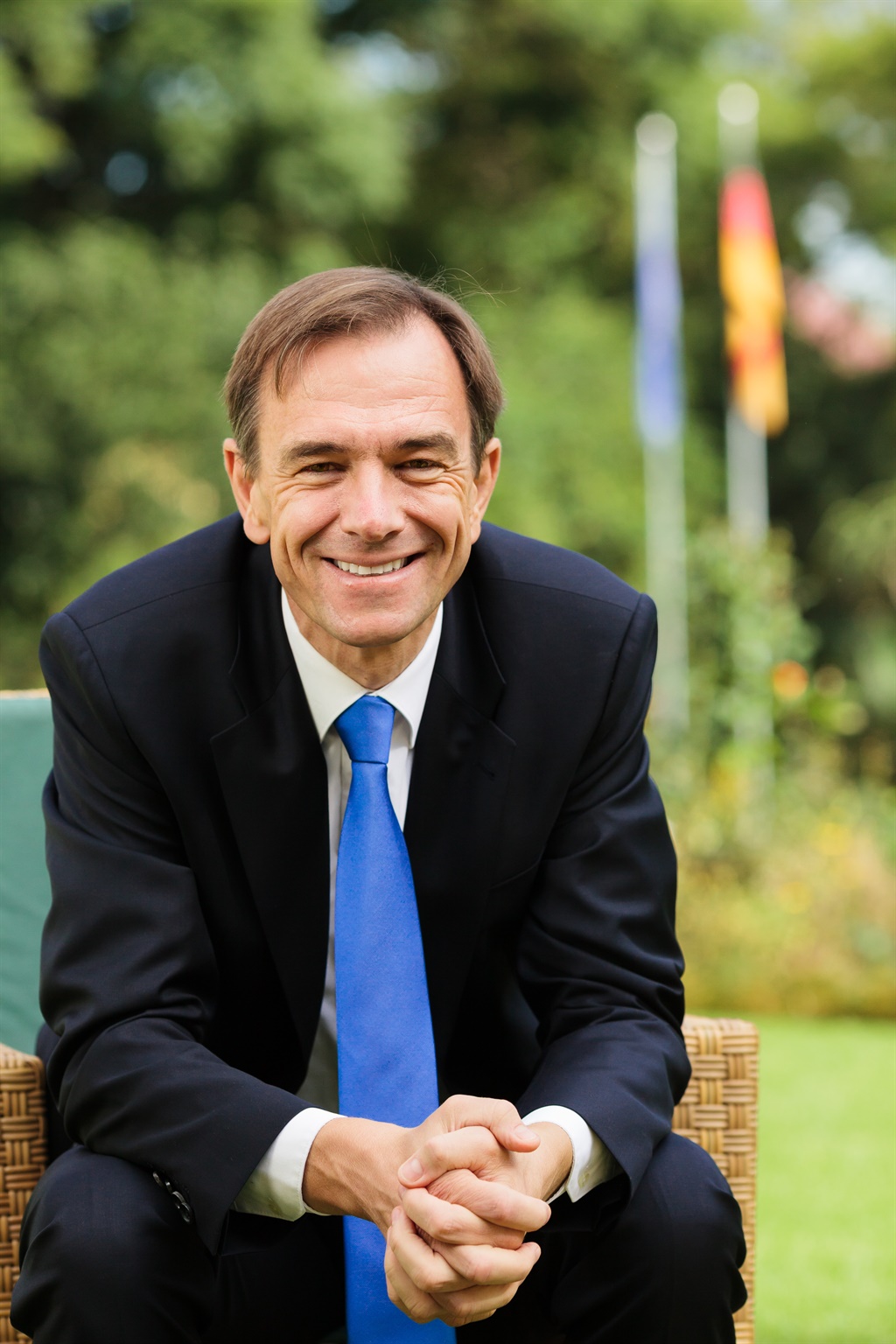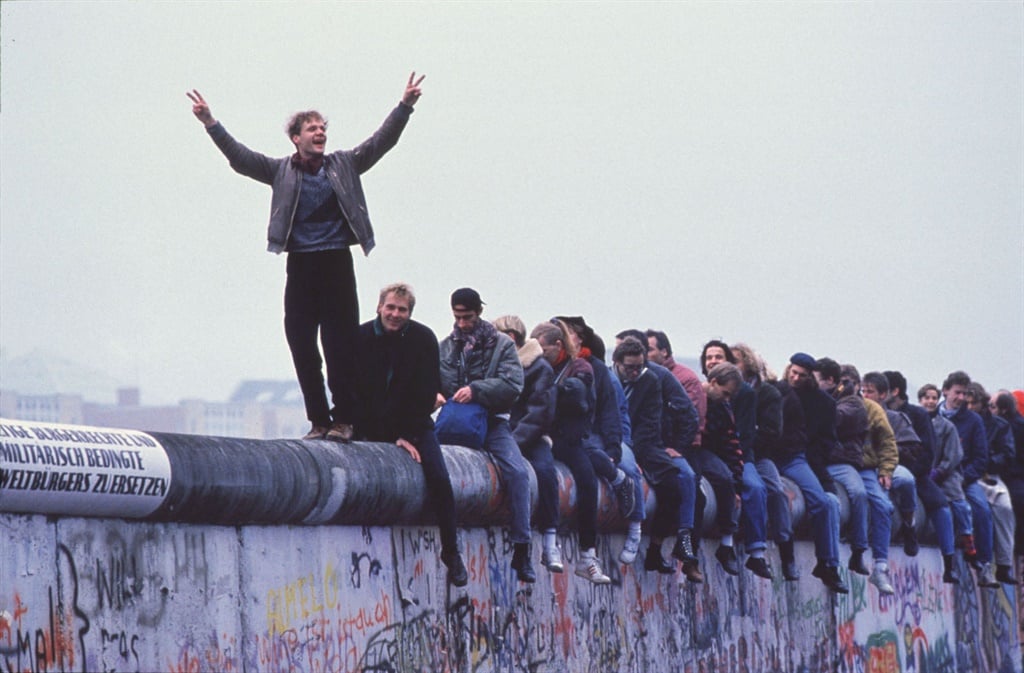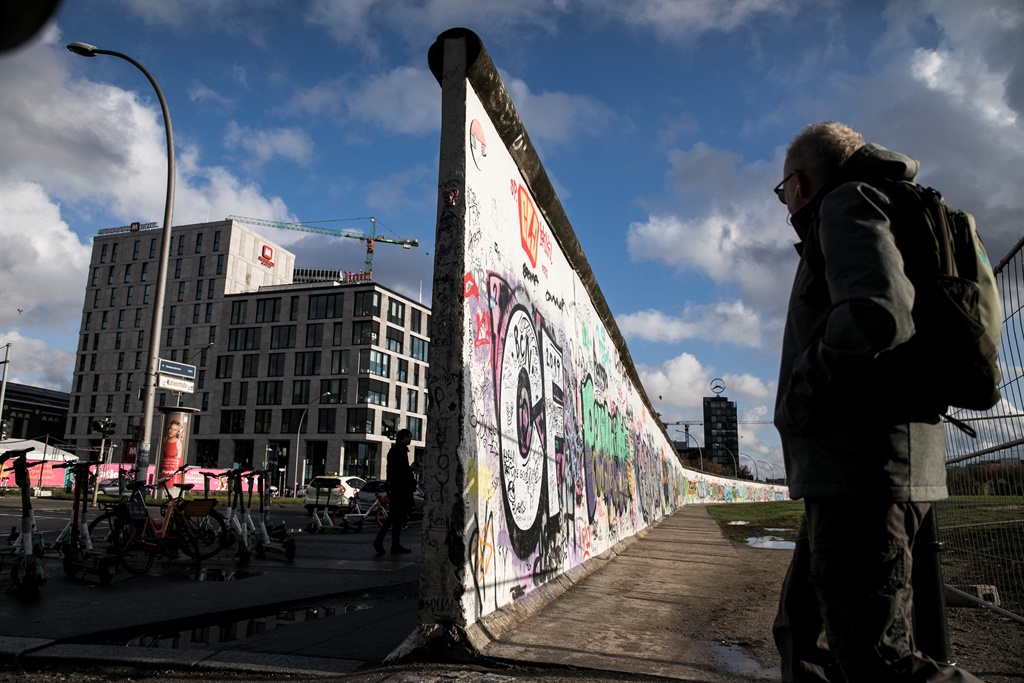
There are many lessons to be drawn from the meaning of the fall of the Berlin Wall, writes Germany's ambassador to South Africa, Martin Schäfer. Some are domestic, like the fight against racism, and some are international, like the need for multilateralism.
On Saturday, we are celebrating 30 years since the Berlin Wall came down. Germans do not tend to use superlatives. But I think it is no exaggeration to say that the fall of the wall marked the happiest moment in my country's history.
In world history, there are only a handful of real turning points - in the sense that the world was not the same ever after.
One was the fall of the Berlin Wall in November 1989. The other, of course, was the release of Nelson Mandela a few months later in February 1990.
These two events happened at the same time. And they will bind our two nations - Germany and South Africa - together forever.
These events marked the moment in history when both our countries turned from oppression to freedom, from injustice to democracy, from despair to hope. It was the moment when all of a sudden, everything became possible!
In both Germany and South Africa, we know what it means to turn a page. We know what it means to overcome a deeply painful chapter of the past. We know the trepidation, the pain, the nagging questions without proper answers, issues of guilt and responsibility, hopes of redemption and forgiveness. What we know for certain is that even though we have managed to overcome a dark chapter, we must never forget that it happened - however difficult that may be.
For us Germans, November 9 is a special day to remind us of this. The day does not only mark our history's most joyous moment but also one of its darkest hours. November 9 has been labelled a Schicksalstag - a fateful day in German history.
It was on November 9, 1918, at the end of World War I, that not one, but two German republics were proclaimed in Berlin. The one that gained the upper hand, later called the Weimar Republic, our first attempt at a democratic, republican constitutional order, was swept away by the Nazis only 15 years later.
It was on November 9, 1938, another five years later, that the Nazis unleashed brutal pogroms against Jews across Germany. This horrendous day foreshadowed what was to come: persecution, violence and murder, the vicious attempt to annihilate the European Jews, the Shoah.
I believe that we must not turn away from the abyss of the Shoah. When I look at the date of November 9, it is in the conviction that the memory of our past should guide us as we celebrate the freedom and democracy we enjoy today.
What does that actually mean? I would like to point out two main lessons to be drawn - one concerning the domestic and the other the international sphere.
Domestically, in our societies, the past should teach us that we must stand up for the values that unite us. We must rise against those who seek to divide us, who seek to sow hatred and mistrust, who seek to destroy everything we have spent decades building together.
In Germany, the horrible anti-Semitic attacks that were committed in the city of Halle last month show us that we must never take our democratic achievements for granted. The ugly face of racism did not vanish in 1945. We must be determined and unwavering in our fight against anti-Semitism. It simply does not have a place in our society. That is a crucial lesson our past should teach us. The Schicksalstag of November 9 serves as an important reminder.
The lessons from our history should also guide us in our international partnerships and collaborations.
Just consider the situation of our European partners and allies in 1989. They did something extraordinary. After all the suffering that Germany had brought across Europe in the 20th century, our European neighbours were stretching out their hands to us, providing us Germans with the gift of reunification.
It was a grand display of what international partners can do and achieve when we think beyond national borders.
And that, I believe, is a key lesson to take into the future. A "my country first" policy will not only be ineffective in addressing our global challenges, it is also dangerous because it risks opening new rifts and sources of conflict.
If we want to tackle issues such as climate change, security and conflict, we must work hand in hand as international partners.
South Africa and Germany are strong defenders of this endeavour. Both our countries are defending the value of international co-operation on many fronts - here in Pretoria, in Berlin, but also at the UNs Security Council in New York, where we both currently hold non-permanent seats.
So here is the real reason I am so pleased to celebrate the anniversary of the fall of the Berlin Wall in Pretoria this year: It is because we are celebrating our two countries' historic turn to freedom and democracy 30 years ago. And it is because we are celebrating the unique German-South African partnership.
There is ample reason to celebrate. We have planned a special event to commemorate the anniversary on Saturday: A party in the heart of the city - the Pretoria CBD. Together with partners from all fields of German-South African co-operation, we will host a colourful market to celebrate the wonderful, multifaceted kaleidoscope that the German-South African friendship is today.
Disclaimer: News24 encourages freedom of speech and the expression of diverse views. The views of columnists published on News24 are therefore their own and do not necessarily represent the views of News24




 Publications
Publications
 Partners
Partners

























